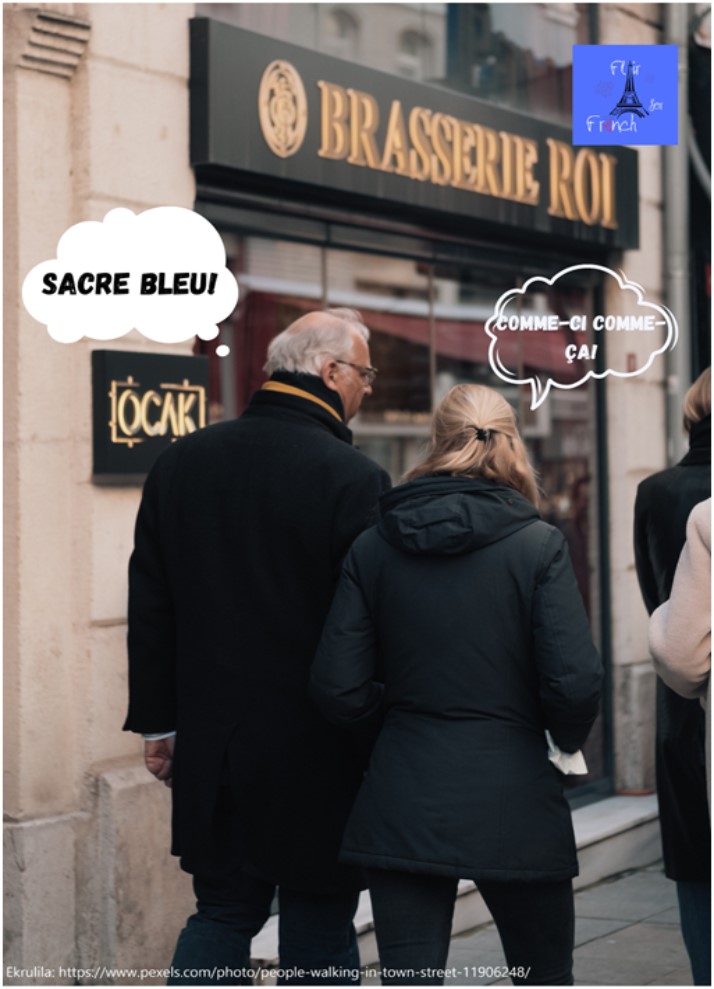Sacre bleu! Comme-ci comme-ça : those expressions you should forget about when learning French
This week, I thought I would write a post in English for everyone to understand. My aim? To enlighten on a few faux-pas you should not be making whilst learning la Langue de Molière.
1. Comme ci comme ça.
When you start learning a language, the aim is to quickly be able to greet, ask basic help, in other words to have the capability to interact a minimum with a french speaker. One of the first expressions I have found in a lot of learning books that is barely used nowadays and that I find very old-fashioned, is the expression “comme-ci comme-ca”. Now, I know we have “so so” in English or even “asi asi” in Spanish, and that students generally like this word but believe me when I say : it is not part of what French people learn at school. Of course, if you try and converse with a french speaker and that you answer to the question “Comment allez-vous?” by “comme-ci comme-ca” they will understand you… you will simply stand out like a sore thumb.

2. Sacre bleu!
Now, this one is an expression which is DEFINITELY not used and not needed in your French learning. Ok, it sounds pretty great and fun, but unless you are a pirate or Capitaine Haddock in Tintin, it should not be part of your French vocabulary notebook. However, there is nothing that forbid you to keep it for the next fancy dress party you have been invited to.
3. Bonne après-midi!
This one is something that I never actually knew was an issue until I helped in a French class at a local primary school. Now, before I start, I want to make it clear that I am not in anyway criticising the poor teacher who gave those French classes at the time. The school had no budget for MFL and asked someone who didn’t have the experience to cover those classes. So, frankly I thought it was amazing what this teacher was able to do considering the circumstances.
However, since then, I have heard this mistake being made by others and thought it was important to underline it to make sure that you, the readers who might want to have a go at French, do not fall into that linguistic trap.
To greet somebody, we use “bonjour” in France. Often, in lessons, we translate it as “good morning” however, although correct, “bonjour” actually means “good day” and is used morning and afternoon in the Hexagone. You could say that our “bonjour” is both your “good morning” and “good afternoon”.
Where does the confusion arise? Well, while it might seem logical to translate “good afternoon” by “bonne après-midi” it is in fact incorrect. We do use “bonne apres-midi!” in France, but not to greet. Instead, the expression is used as wishing goodbye and could be translated as “have a good afternoon!”.